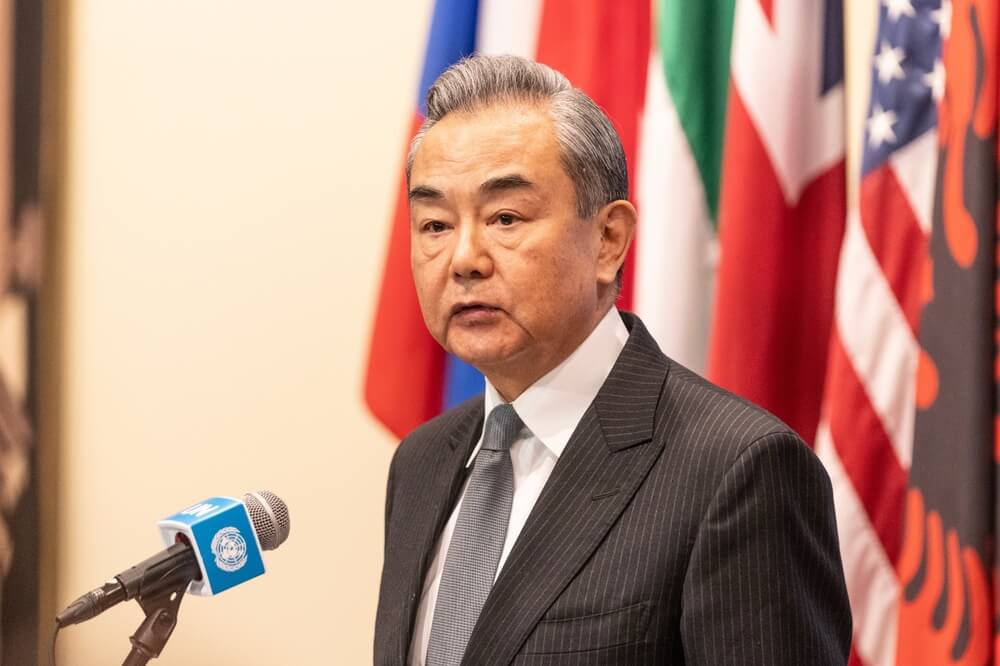Beijing sees an opportunity for its new influence in the Middle East in the mediation of negotiations between Hamas and the Palestinian Authority on Gaza's post-war administration.
Next week, the second round of negotiations between the warring Palestinian factions will take place in Beijing, under the guidance and support of the Chinese leadership. Their first joint meeting in April failed to bring about a rapprochement.
Moreover, the recent Israeli action in southern Gaza, which targeted Muhammad Deif, the leader of Hamas' military wing, and resulted in at least 90 civilian deaths, escalated the conflict between the Palestinian Authority and Fatah.
That was the reason for the PA leadership to accuse Hamas of "hiding between the residents to protect and save itself." Following Hamas's accusations that the PA was "siding with Zionists," instead of the expected calming of tensions, the PA president, Mahmoud Abbas, delivered a more challenging statement: "The Hamas movement is a partner in bearing legal, moral, and political responsibility for the continuation of the Israeli war of genocide in the Gaza Strip."
Taking better positions in negotiations
In addition to being typical of their long-standing conflict, these recent sparks between the PA and Hamas are also part of their preparations to take the best possible positions for the talks under Beijing's auspices.
Both Palestinian factions take these discussions seriously and send their highest representatives. Hamas' political leader, Ismail Haniyeh, who operates from Qatar, and a high-ranking three-member delegation from the West Bank, including Mahmoud al-Aloul, Fatah's deputy president, will travel to Beijing.
Despite long-standing hostilities, both Palestinian factions are in favour of Chinese mediation. Beijing and the Palestinian Authority have traditionally maintained close relations, and Hamas is keen on strengthening its ties with China.
Both sides see China as a political sponsor that will not make strict demands on them
They see China as a political sponsor that will not make strict demands on them, both in terms of pacifying the region and, in particular, in connection with internal democratisation and the suppression of massive corruption.
Beijing has opened a negotiation channel for the future organisation of the Gaza administration, providing both Palestinian factions with an opportunity to reduce their vulnerabilities and exert influence over future processes in the Gaza Strip.
This is particularly important for Hamas, whose terrorist attacks on Israel disqualify it as a participant in the post-war administration of Gaza, especially with Israel but also with its Western partners.
Beijing's expectations
However, Beijing also has multiple reasons to invest in the inter-Palestinian dialogue, and it is currently doing so.
After the diplomatic breakthrough that led to a thaw between Iran and Saudi Arabia in March 2023, Beijing's influence in the Middle East has declined.
Hamas' terrorist attacks on Israel on October 7, as well as the subsequent Israeli action against Hamas in Gaza, put China in a state of diplomatic "hibernation." Its declared commitment to achieving peace and preventing the conflict from spreading further into the region was unconvincing and fruitless.
Hosting a new round of inter-Palestinian dialogue will be a further confirmation of China's intact closeness to Iran
At the same time, Beijing demonstrated, in practice, a genuine alliance with Iran, the main instigator of conflict escalation in the region. The joint naval exercises of Iran, China, and Russia in the Gulf of Oman last March were a clear support of Iran's destructive actions in the region, the Houthis' attacks on ships in the Red Sea zone, and, of course, Hamas' fight against Israel.
Hosting a new round of inter-Palestinian dialogue will therefore be a further confirmation of China's intact closeness to Iran, but also an attempt to maintain the closeness with the Arab factors in the region at the same price.
Filling the vacuum
For its new diplomatic action towards the Middle East, Beijing utilised the empty space left to it by its Western competitors.
They took advantage of the US preoccupation with internal political processes in the run-up to the presidential election, which is partly why the US initiative, including strong pressure on Israel to achieve peace in Gaza, has stalled.
 Beijing's strategy is not to directly intervene to find a peace solution for the crisis in Gaza, but rather for the day after - Wang Yi
Beijing's strategy is not to directly intervene to find a peace solution for the crisis in Gaza, but rather for the day after - Wang Yi
Moreover, the new Chinese advance comes at a time of turmoil within Israel, with Benny Gantz leaving the war cabinet and increasingly vocal public demands to end the military operation in Gaza and return hostages home.
This vacuum reinforces a whole series of Israeli initiatives for a post-war organisation of Gaza, which, however, are unable to win more support either in the country or among its allies.
Therefore, Beijing's strategy is not to directly intervene to find a peace solution for the crisis in Gaza, but rather for the day after. But by influencing the two Palestinian factions in the expectation that it could easily secure influence over the post-war settlement of relations within the Palestinian community, Beijing is also acting as a mediating factor in achieving peace without significant political risk.
However, China's ambitions do not go beyond improving its own positioning in the Middle East crisis, especially towards its two most significant partners, Iran and Saudi Arabia.
Therefore, even if Chinese mediation in the inter-Palestinian disputes continues beyond next week's new round of negotiations, it will not have the potential to lead to a comprehensive solution.